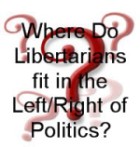The end of the intifada
I hate being optimistic, it only leads to bitter disappointment later. But I am going to go out on a limb. Yassar Arafat's death has also led to the end of the second intifada. I know my pro-Palestinian friends are going to cringe, but it appears that without Arafat pulling the strings and instructing his terror network, the violence movement has petered out and there is real hope for a settlement. Since his death, there has been neither a rocket attack, nor a suicide bombing in Israel. Things have settled down so much that the Israeli army has begun documenting incidences of stone throwing for the first time in two years. The Palestinians sense the change as well.
"Hassan Yousef, a top West Bank Hamas leader, said the group "accepts a Palestinian independent state within the 1967 borders with a long-term truce."- Jerusalem Post"
A recent poll in the Palestinian territories shows that:
"A majority of 51.8 percent of the Palestinians polled said that they were opposed to "military operations" against Israeli targets and consider them harmful to Palestinian national interests, compared with 26.9% last June. Only 41.1% of the Palestinians believe that terrorist attacks should continue compared with 65.4% last June." - Jerusalem Post
This is dramatic and historic. However there remain many roadblocks and pitfalls left to be traversed. While Sharon's Gaza pull-out plan has been approved by his party and labor will soon be joining his Lakud government, the chance of backlash from the settler community derailing the pull-out and hence the road map remains a distinct possibility. The relative weakness of Abu Mazen and the desire of Syria to hold on to the Palestinian cause for political reason can also undermine the peace. Marwan Barghouti's effort to run for the Palestinian presidency from a prison cell (and polling in a close second) is also worrying. Barghouti represents the old, Arafat-era politics of symbols over substance. If the Palestinians truly want a state instead of a cause, he must be convincingly defeated. What should the U.S. do? Get out of the way mostly. Giving aid to the P.A. sends a positive message, but the messenger is suspect. If the Palestinian leadership is seen as becoming cozy with the United States, their credibility will be ruined and chaos will return. Be firm, but not paternalistic, with the Israelis. America has sacrificed much to support Israel and now it is time for them to return that loyalty with bold action. We must be prepared to tell them that we will not support them if they refuse to negotiate away the barrier fence, we will not support them if they refuse to accept the '67 borders and we will not support them if a complete disengagement from all Palestinian territories is not on the table. To the Palestinians we must say, Israel cannot exist with a Jewish minority. There is no right of return and you must not stymie the peace process over this unobtainable goal. There is no acceptable level of violence, as long as Israel is threatened, the Palestinian people are sending the message that they are not ready to be a responsible state and are not ready to join the family of nations. This is an important moment in the "war on terror" as well. There is no more polarizing issue in the Muslim world today than the Israel-Palastinian conflict. Ending it will disengage the United States from it's most compromising international public relations issue. It will slow fund-raising to terror groups and take a propaganda tool away from our most strident adversaries, be they state or non-state actors. The importance of the issue to Mid-East leaders was clear this week a the "Forum for the Future":
RABAT (AFP) Arab nations rebuffed US calls for speedy democratic reforms, insisting that steps the United States deems essential to stem terrorism be tied to a just and lasting peace in the Middle East.While agreeing that political, social and economic liberalization is desirable, senior Arab diplomats disagreed with outgoing US Secretary of State Colin Powell's argument that reforms could not be delayed for any reason.Speaker after speaker at the "Forum for the Future" conference here said progress would be difficult, if not impossible, without a resolution to the Arab-Israeli conflict and lambasted the perceived US bias toward Israel.In the final chairman's statement, meeting participants said "their support for reform in the region will go hand-in-hand with their support for a just, comprehensive and lasting settlement to the Arab-Israeli conflict."
A Middle East peace would be a victory to the United States, but not for the United States, far more important than Iraq or Afghanistan. When talking to other Americans, I often get the sense that they don't comprehend just how much credibility with the rest of the world that the US has sacrificed in order to support Israel or how important this issue is to people in Europe and the Middle East. Much that has been lost could be regained if Abu Mazen and Ariel Sharon could sit down at a table and make the deal, but it will require the statesmanship and integrity that Arafat could never muster.
*************************************************************
The new intelligence bill passed by congress is a disaster, but don't take my word for it. Read Tom Friedman's dead-on analysis of this legislative train wreck here.
*************************************************************
I am required by outrage and fear to remind everyone how dangerous the Patriot Act and the growing American police state are to freedom and liberty. The Republicans have painted this argument as just rhetorical grandstanding by the Democrats, but anyone who believes in the Constitution and the sovereignty of the individual must scream from the rooftops, "NOT IN MY COUNTRY!!!" You can start by reading Timothy Lynch's article "More Surveillance Equals Less Liberty"

 Contact Me
Contact Me








0 Comments:
Post a Comment
<< Home